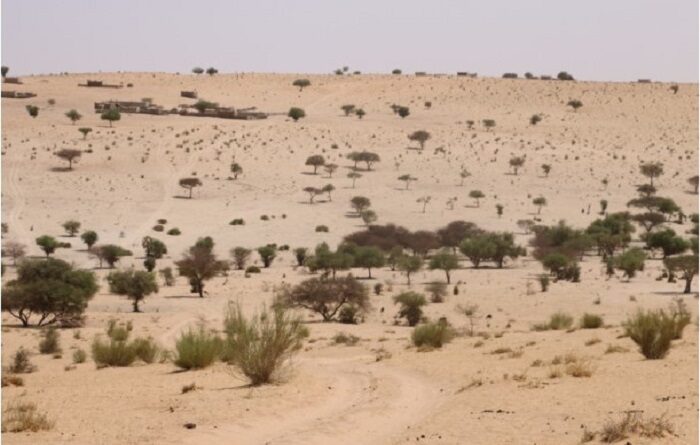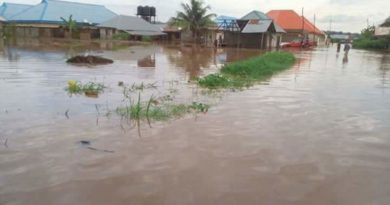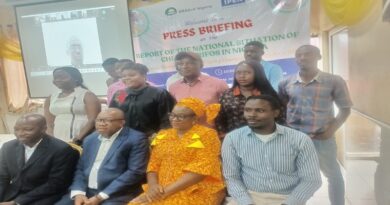Germany hosts 30th anniversary of UN Convention to Combat Desertification in Bonn
Mobilizing all generations in support of sustainable land stewardship is the focus of Desertification and Drought Day 2024, celebrated on 17 June, marking a pivotal moment in the global effort to combat land degradation and drought. Hosted by the Federal Republic of Germany through the Federal Ministry for Economic Cooperation and Development (BMZ) in Bonn, the event brought together changemakers from around the world under the theme “United for Land: Our Legacy. Our Future”.
This year’s event coincides with the 30th anniversary of the United Nations Convention to Combat Desertification (UNCCD), the sole global agreement dedicated to sustainable land management ratified by 196 countries and the European Union.
United Nations Secretary-General António Guterres said: “As the focus of this year’s World Day reminds us, we must be “United for Land”. Governments, businesses, academics, communities and more must come together, and act. We know what we need to do: it’s set out clearly in the United Nations Convention to Combat Desertification. As we mark the thirtieth anniversary of the Convention, the world must dramatically pick up the pace of implementation; Build momentum towards UNCCD COP16 in Riyadh; And ensure young people are heard in the negotiations. Together, let’s sow the seeds for a thriving future – for nature and humanity.”
President of the Federal Republic of Germany Frank-Walter Steinmeier said: “Today, we are not only commemorating the annual “Desertification and Drought Day”, but we are also celebrating 30 years of the UN Convention to Combat Desertification. There is nothing more important, more basic, than good soil, safe food, and clean water. So let ‘s work together! And let ‘s bring in young people to make sure that our decisions today ensure their good future tomorrow.
2024 is a decisive year: What is discussed, negotiated and decided this year will shape our world and the lives of our children.”
UNCCD Executive Secretary Ibrahim Thiaw said: “The future of our land is the future of our planet. By 2050, 10 billion people will depend on this vital resource. Yet we are losing the equivalent of four football fields to land degradation every second.”
State Secretary Jochen Flasbarth said: “Healthy soils form the basis of our future. No matter whether we are talking about climate change, biodiversity loss, or food crises – soil quality plays a central role for meeting these global challenges. Soils retain water and allow trees and plants to grow. We will only be able to feed humankind and deal with the climate crisis and its impacts if we have healthy soils.”
Land degradation affects up to 40% of the world’s land and nearly half the world’s population, with the highest costs borne by those who can least afford it: indigenous communities, rural households, smallholder farmers, and especially youth and women.
More than a billion young people who live in developing countries depend on land and natural resources. Engaging youth in land restoration can create the estimated 600 million jobs needed in the next 15 years, contributing to both economic growth and environmental sustainability.
“For too long, desertification and drought have been seen as problems specific to the South. However, these phenomena are spreading globally and affect us all. The past year has been marked by many events that remind us of the urgency of action. This Desertification and Drought Day and the forthcoming COP16 in December must allow us to organize and fight against desertification and its consequences. There is no time to lose,” stressed COP15 President Alain-Richard Donwahi.
Ten Land Heroes were announced by UNCCD at the global observance event. These young changemakers from around the world are working to restore land, boost resilience to drought, develop sustainable agricultural businesses, and harness technology and innovation to tackle global environmental challenges.
“UNCCD recognizes the talents of young people as entrepreneurs and agents of change. They are key to transforming their communities and driving innovation in sustainable land management. From Brazil to Mali, from Philippines to Moldova, young leaders are committed to restoring land. We need their voices to shape the future of our planet,” Thiaw added.
The event culminated in a series of announcements and commitments to promote sustainable land management. A new programme to train youth negotiators to become future decision-makers on land and drought issues was launched. In its first year, youth negotiators from more than 30 countries will receive training ahead of the 16th Conference of the Parties (COP16) to the UNCCD, to be held in Riyadh, Saudi Arabia, in December 2024.
Bonn Mayor Katja Dörner, in cooperation with UNCCD, inaugurated the city’s first “land-friendly” school. This unique programme gives students the opportunity to learn about organic farming through both educational and practical lessons on the school’s farmland.
Countries around the world also organized Desertification and Drought Day events. Italy issued a commemorative stamp, and the Belgian EU Presidency hosted a documentary screening and panel discussion on land restoration in Burkina Faso. Kenya planted over 120,000 seedlings as part of a tree planting and awareness campaign. Nigeria hosted a webinar on sustainable practices, while Tunisia held an online event on land degradation neutrality. India discussed sustainable land management in Chennai; Myanmar launched an online campaign and held a high-level event in Naypyidaw; and the Philippines organized tree planting activities and stakeholder workshops. Sri Lanka held an awareness-raising campaign, Guatemala linked sustainable development and land management, and Moldova held an interregional meeting on drought and land degradation neutrality.
Profiles of the Land Heroes cohort 2024
Brazil: Beatriz Azevêdo de Araújo, an environmental lawyer in Ceará, has turned her personal experience of drought into a mission for sustainable development. She ensures that energy projects are environmentally friendly and promotes green jobs.
Costa Rica: Astrid Peraza is a materials science engineer, climate and gender activist and storyteller from Costa Rica. She strives to empower women and girls, creating opportunities for growth and inspiring them to be changemakers.
Germany: Lina Pickhardt is leading efforts to rehabilitate degraded land and improve soil quality, while tackling wildlife trafficking. Lina’s journey from witnessing environmental degradation to driving community-led restoration projects is a compelling story of transformation and impact.
India: Siddhesh Sakore is a farmer and the founder of AGRO RANGERS. He is passionate about solving the problems of soil degradation on agricultural land. He is committed to empowering small and marginal farmers from his community through innovative agroforestry models.
Mali: Rokiatou Traoré is a Malian entrepreneur passionate about tackling poverty, climate change and food insecurity. Through her social enterprise, Herou Alliance, she empowers women and youth by creating a sustainable moringa value chain in Mali.
Moldova: Aliona Isac is a young activist fighting desertification through sustainable agriculture and tree planting initiatives. Her work is restoring local landscapes and securing the future of her community.
Morocco: Manal Bidar is a climate activist from Morocco and the founder of the Moroccan Regional Youth Governments Project, which focuses on land conservation and combating drought and desertification in the Middle East and North Africa region. She works to amplify youth and marginalized voices in global climate resilience and land advocacy.
Philippines: Billie Dumaliang is the co-founder and advocacy director of the Masungi Geo reserve Foundation, known for protecting a karst ecosystem near Metro Manila. The foundation has won several awards, including the 2022 UN SDG Inspire Award.
USA: Grace Magny Fokam is the founder of Folia Technologies, a non-profit, youth-led research institute that’s dedicated to the development of artificial intelligence technologies that address the climate crisis. Their flagship invention, FoliaNet, is an AI-powered device that detects diseases in crops.
Zimbabwe: Recent graduate Takudzwa Ashley Mlambo has launched the country’s largest reforestation initiative, aiming to plant one billion trees by 2030. His project dovetails with the government’s goal of restoring 2.5 million hectares of degraded land.




